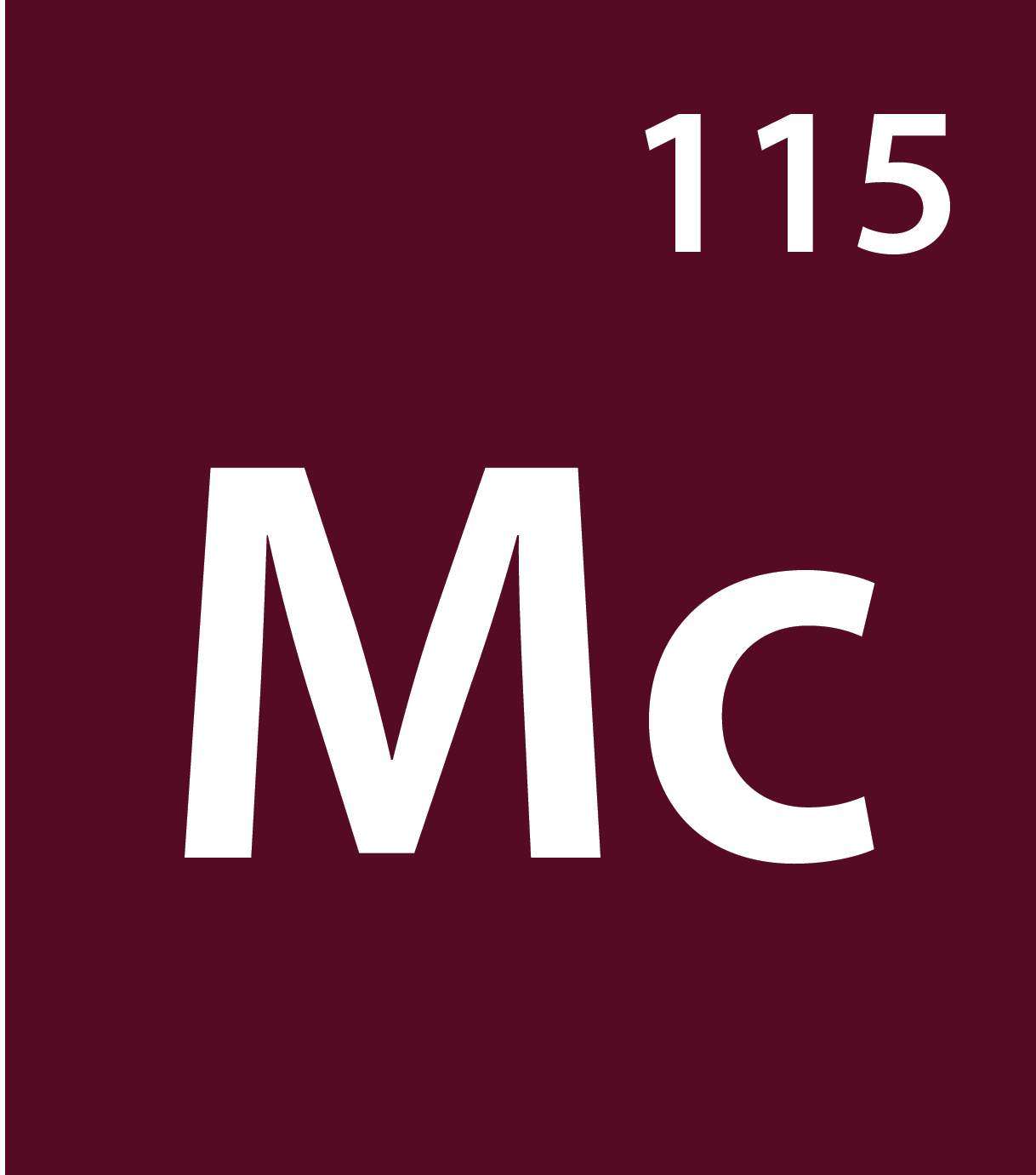Moscovium (Mc)
Isotopes of Moscovium
| Isotope | Atomic Mass | Half-life | Mode of Decay |
| Mc-287 | 287 | 0.0466 seconds | α to Nh-283 |
| Mc-288 | 288 | 0.0186-0.280 seconds | α to Nh-284 |

Experimental results reported in 2004 involving the bombardment of Americium-243 with Calcium-48 ions are consistent with the formation in the laboratory of a few atoms of elements 113 and 115. In experiments conducted at the Joint Institute for Nuclear Research in Dubna, Russian Federation, observed atomic decay patterns were said to confirm the existence of element 113 and element 115. In these decay chains, element 113 (now known as nihonium) would be produced via the α-decay of element 115. The name moscovium recognizes the Moscow region and honors the Russian area that is the home of the Joint Institute for Nuclear Research, where discovery experiments were conducted using the Dubna Gas-Filled Recoil Separator in combination with the heavy ion accelerator capabilities of the Flerov Laboratory of Nuclear Reactions.
Properties of Moscovium
| Name | Moscovium |
| Symbol | Mc |
| Atomic number | 115 |
| Atomic weight | [288] |
| Standard state | Presumably a solid at 298 °K |
| CAS Registry ID | 54085-64-2 |
| Group in periodic table | 15 |
| Group name | Pnictogen |
| Period in periodic table | 7 |
| Block in periodic table | p-block |
| Color | Unknown, but probably metallic and silvery white or grey in appearance |
| Classification | Metallic |
| Melting point | No data available |
| Boiling point | No data available |
| Density of solid | 13 g/cm3 (predicted) |
| Electron configuration | [Rn]5f146d107s27p3 (predicted) |



